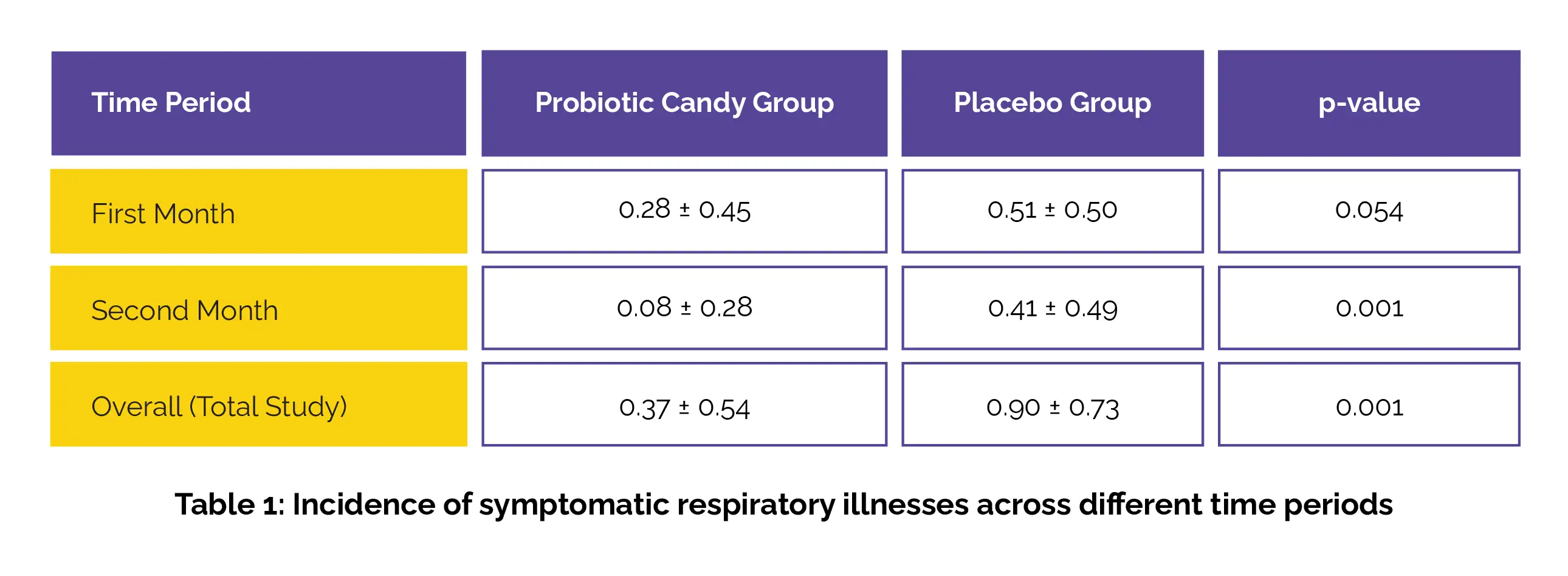Categories
Change Password!
Reset Password!


Asthma stands as the most predominant chronic condition in children, with upper respiratory infections often triggering asthma flare-ups.
Bacillus coagulans probiotic candy could potentially alleviate respiratory symptoms, such as coughing and wheezing, in young asthma sufferers.
Asthma stands as the most predominant chronic condition in children, with upper respiratory infections often triggering asthma flare-ups. Research has indicated that spore-forming probiotics may help mitigate viral infections. This randomized trial sought to explore the impact of Bacillus-based probiotic candy on respiratory health in children with asthma.
Sixty-nine children aged 7 to 11 years with mild intermittent asthma were allotted to receive either probiotic candy (containing Bacillus coagulans 1010 colony-forming units) or a placebo candy, taken for two months every day.
Secondary objectives included evaluating the use of salbutamol metered-dose inhalers, the requirement for oral corticosteroids, non-attendance at school, emergency medical visits, in-hospital stays, and the results of the Childhood Asthma Control Test (C-ACT).
The incidence of symptomatic respiratory illnesses was notably lower in the probiotic candy group compared to the placebo group during the first and second month, and overall throughout the study (Table 1).

The proportion of patients in the probiotic group who required prednisolone was lower than that in the control group (2.9% vs. 14.7%), though the difference was not statistically noteworthy. There was no substantial difference concerning emergency department visits and hospital stays between the two groups.
However, the use of salbutamol (short-acting bronchodilator) and frequent absences from school were suggestively lower in the probiotic intervention group compared to the other group (p = 0.040 and p = 0.046, respectively). The C-ACT scores did not significantly differ between the groups. A notable distinction arose between the groups (p < 0.05) after the use of the candy.
Adding Bacillus coagulans probiotic candy was found to be effective when used with standard asthma treatments, but future studies with longer durations are required before routine use can be encouraged.
World Allergy Organization Journal
Development and clinical assessment of a novel probiotic candy in the prevention of respiratory infections in asthmatic children
Rana Tafrishi et al.
Comments (0)